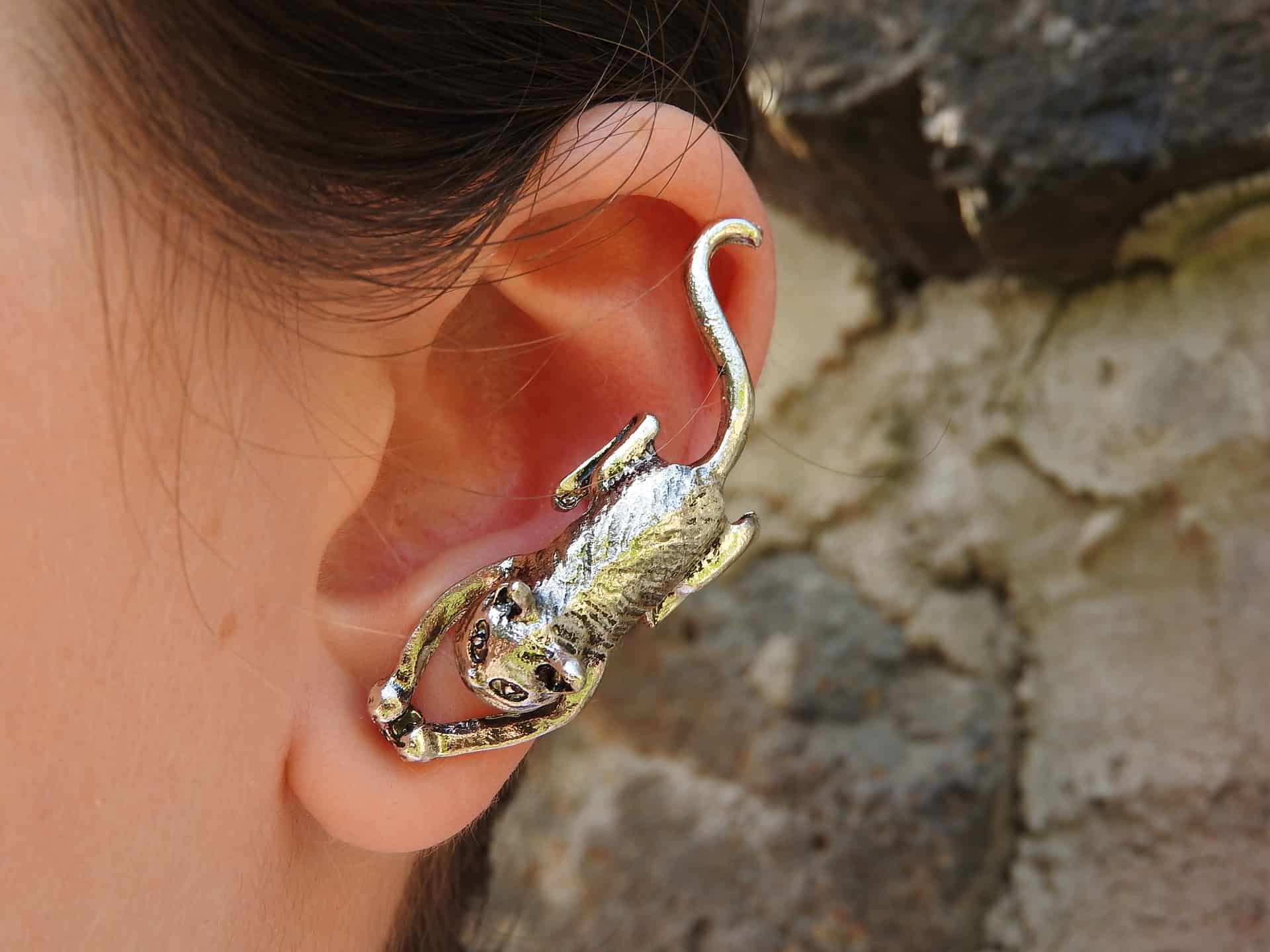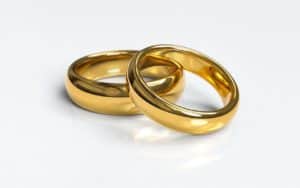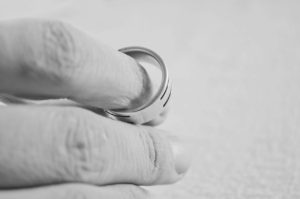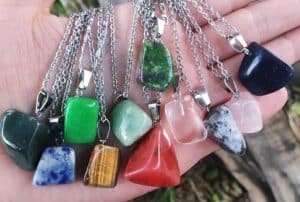I just can not get enough of big chunky silver earrings. If you are also someone who just adores how silver earrings can instantly make you look trendy and boho chic, you must have given them a go at least once. While they are absolute favorites for some, some people just cannot wear them. It’s because they make their ears hurt.
Metals like silver and gold have to be mixed with other metals to form jewelry. This is because silver in it’s purest state is very soft and malleable and the jewelry made out of it is not very sturdy. Regular silver jewelry, which has more than 99% silver, can easily bend if a little pressure is applied to it.
When it comes to silver earrings, wearing them can hurt ears sometimes. There are some factors that contribute to this. One of the factors is the weight. The heavier the earrings, the more they can hurt. Apart from the weight, the other metals present in your earrings can hurt your ears. While pure silver present in the earrings does not cause any allergies or itching, pure silver earrings cannot be made. Most silver earrings have metals like nickel, copper and brass. These metals may cause redness, rashes or itchiness in a lot of people.
The best solution is to venture and look for more options that are comparatively safer to use. You will come across numerous online websites that sell earrings that do not cause skin reactions. These are known as hypoallergenic. Hypoallergenic earrings are made of metals that are non reactive and are not known to cause any allergic reactions.
Let’s dig deeper into it and begin by understanding a silver alloy, Sterling Siver.
What is sterling silver?
Sterling silver, also known as 925 silver is 92.5 silver, with 7.5 percent other metals. The other metals are mostly copper and nickel. It is better than regular silver, which normally has about 99% of pure silver, in primarily 4 area:
- It is harder than regular silver, making the jewelry made out of it more durable.
- Sterling silver is also better for setting of stones owing to it’s hardness.
- It is less prone to tarnish when compared to pure silver
- Sterling silver is shinier
- Sterling silver is also more affordable
Is sterling silver good for sensitive ears?
It depends on the sensitivity and the exact constitution of the jewelry. Even though sterling silver is marketed as safe to use, it may not always be suitable for people with sensitive ears. Since it is not pure silver, sterling silver is not hypoallergenic, and the other metals used might cause allergies or redness. People with sensitive ears are often allergic to nickel or copper. Exposure to these metals might cause a skin reaction. While sterling silver does not normally contain nickel, but it does have copper. So, if your ears are too sensitive, these earrings might not be for you.
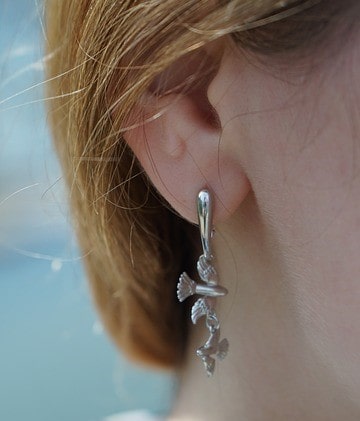
What are the best earrings for sensitive ears?
Just because your ears are prone to skin reactions and allergies, you do not have to restrict yourself from wearing earrings. There are many options for you, let’s go through them based on categories:
- Metal Earrings: When shopping for jewelry, look for earrings made of metals such as titanium, palladium and platinum. Rhodium is also one metal that is used for plating in jewelry and is hypoallergenic. Having said that, earrings made in these metals may be more expensive. If you are looking for something in budget, you may check out earrings made out of surgical steel. These metals are used in medical equipment and are thus, skin-friendly. Metals like gold and silver in their purest forms are perfect for people with sensitive skin.
- Plastic earrings: These days medical grade plastic earrings are available online. These are hypoallergenic and not very expensive.
What are the best hypoallergenic materials for earrings?
Hypoallergenic refers to the material which is less likely to cause an allergic reaction. Listed below are some metals which are less known to cause allergies. You may try these out to find out which one works best for your ears.
- Pure gold: If your earrings are of 22 karat gold (and do not contain nickel or copper), they are less likely to cause an allergy. The better the karatage, the better your earrings are going to be. This means, 18 karat gold earrings are less likely to cause allergy in comparison to 14 karat gold. Try to avoid “gold-plated” earrings as the layer of gold eventually wears off.
- Silver: Just like gold, silver will have different compositions like 925 silver, 958 silver and so on. Silver is very common and far cheaper than gold. However, it tarnishes quickly and needs regular polishing.
- Platinum and titanium: Platinum and titanium are safe to wear as they are unlikely to cause an allergy and are hard-wearing.
- Surgical steel: Surgical steel is a great mid-priced option for sensitive ears as it is made of a variety of corrosion-resistant steel.
- Silicone, plastic, or acrylic: Earrings made out of these materials are quite inexpensive. Since most people are allergic to metal, earrings made of these materials can be a good alternative.
Will sterling silver irritate or hurt my ears?
The copper in the sterling silver may cause an allergic reaction to your ears. Those with highly sensitive skins can be allergic to copper. You also need to check with the manufacturer. If you are buying from a non-authorized or non-certified store, your sterling silver may not be good quality. It may contain nickel in addition to copper. Nickel is known to cause allergic reactions in people with moderately sensitive skin as well. Which means, this sterling silver can cause discomfort, redness, and pain. So to sum it up,
- your ears are sensitive to copper
- your sterling silver is not certified and contains nickel
- the post is too long to poke the skin behind your ear
- the earrings are too heavy
Why do my ears react to silver earrings?
As we mentioned above, if your silver earrings are causing allergic reactions, you need to check the exact composition of your earrings. It cannot be 100% silver, as it is too soft and malleable. It is mixed with other metals for strength. Most skin reactions by earrings are caused due to the presence of nickel, or even copper. Sterling silver may contain enough nickel or copper to prompt an allergic reaction. If your earrings are plated with nickel, they will come in contact with your skin and cause reactions. These, in turn, will cause you discomfort and irritation.

Why do silver earrings make my ears sore?
There are numerous reasons why your silver earrings might be making your ears sore. Here are three reasons that are quite often the source of discomfort.
- Presence of nickel: Nickel is a noteworthy irritant that can cause discomfort to your earlobes. If you have sensitive ears, steer clear of earrings containing nickel. Nickel allergies are quite common, and it is interesting to note that these are not instant. The soreness and pain might reveal themselves after a day or two.
- Earrings are too heavy: If you usually wear studs or lightweight earrings, heavier earrings might tug at your earlobe, causing discomfort. At first, it might go unnoticed, but as the day wears on, your ears will begin to hurt.
- No time to breathe: If you keep your earrings on all the time, your skin does not get much air. This may also lead to soreness in and around the earlobes.
- Earrings are too tight: Even if you are giving your ears some time to breathe, your ears will still be sore if your earrings are too tight. Some earrings, especially the ones with clasps can be tight for some people. You must ensure that your earrings aren’t too tight when you wear them.
- Earrings are plated: Often, earrings are plated with a thin layer of silver but the underlying metal may be reactive. Over time, this layer wears off, exposing the underlying base metal. This metal, which is nickel in most cases, causes an allergic reaction, making your ears sore.
Why do my ears get infected when I wear silver earrings?
Infections due to silver earrings are a common sight. These could arise for a variety of reasons, some of which are listed below.
- Nickel in your earrings: Cheap jewelry is known to cause redness and irritation. It is usually due to the presence of nickel in your earrings that causes an allergic reaction.
- Piercings haven’t healed: Another reason could be that you have not taken proper care of your piercings. If your piercings are not healed completely, you will be prone to infections.
- Unhygienic conditions: Neglecting hygiene around your ear piercings can also cause infections. Also, wearing earrings with dirt accumulated on them, or not keeping your earrings clean when wearing may lead to infection. If you touch your ears with dirty hands, there are chances of bacterial infections.
In case you have an actual infection, it is best to get it treated by a health care provider.
How can I prevent infections due to earrings?
Being aware initially and taking preventing measures can help prevent infections. Knowing certain aspects and working on cleanliness is key.
- Warm non-iodized water soaks are beneficial in preventing infections, especially with freshly pierced ears. These can be performed once or twice every day. Check with the person you got your piercing done from.
- Wash your piercings daily with a mild soap or cleanser. Ensure that the water passes through the piercing.
- Make sure your earrings are free of any dirt or dead skin from your ears.
- Wash your hands before touching your earlobes to avoid bacterial infections.
- If your doctor or the person that pierced your ears has given you an ointment, apply it regularly.
- Apply antibiotic ointment to the area from time to time wherever advised by a professional.
- Regularly rotate the earrings after applying ointment to lubricate the piercing.
- Wear earrings that suit you. Avoid metals and materials that irritate your skin.
- If you got your ears pierced recently, you should not change earrings often. Be extra careful as the skin is still sensitive.
What do you do if your ears get affected by silver earrings?
If you are facing severe discomfort after wearing your silver earrings, do not take it lightly. Here are some steps to follow to ease your pain.
- Remove your earrings. Avoid removing, and do not touch them if it hurts.
- Rinse the affected area with sterile saline.
- See and doctor and use the recommended antibiotic ointment on your earlobe.
- In case of severe infections, take prescribed oral antibiotics.
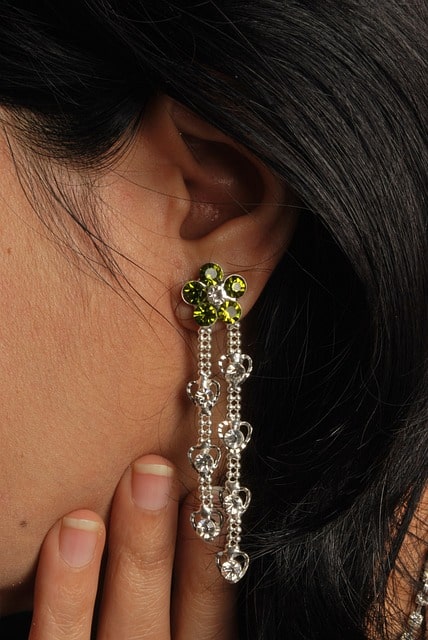
How do I stop my silver earrings from hurting my ears?
As a buyer with sensitive ears, you need to be very careful while buying earrings. Here are some things you can consider:
- Know your enemy: You need to find out the metals that you are allergic too. While most people are only allergic to nickel, there are numerous other metals like copper, brass, aluminum to which a lot of people are sensitive to. In order to do that you need to know what your jewelry is made of. This brings us to the next point.
- Check for composition: Now that you know of the metals that are not skin friendly, you need to make the right purchase. The first and foremost thing you can do is to ask your jeweler about the exact composition of your jewelry. Most jewelers only mention standard labels e.g. Karat with gold jewelry and stamps like 925 or 950. But you need to know what other metals are present in the jewelry apart from the primary metal. Other metals such as brass and copper may also react with highly sensitive ears.
- Buy from certified stores: Check out brands online that make hypoallergenic earrings to save yourself from allergies and skin reactions. Products at certified stores are not falsely labelled.
Now that we have looked at some of the things we need to keep in mind when we shop for earrings, let’s look at tricks that can help us wear the loved pieces we already own.
How can I prevent earrings I already own from irritating my ears?
There are some hacks that may help you make your earrings safer to wear. Let’s look at them:
- Clear nail paint: The best solution is to paint the earrings with coats of clear nail polish to create a barrier between the nickel and your skin.
- Plastic sleeves: Anti-allergy plastic sleeves for earrings are available in the market. You can cover the post of your earrings with these. These are usually very thin. They prevent your skin from coming in contact with metal directly. Thus, makes them temporarily hypoallergenic.
- Petroleum jelly: You can apply petroleum jelly to your earrings before putting them on. However, the effect wears off quickly, and you will have to reapply.
- Use an ointment: There are many ointments available today that can help you wear your favorite pair of earrings without having to suffer. You may consult with your doctor and ask them for an ointment that would suit you. Keep it handy. Apply it before you put your earrings on. If you are going to wear your earrings only for a couple of hours, you may not even have to re-apply. However, it is recommended to clean your ears after a couple of hours and re-apply. You must discuss the same with your doctor.
- Get the post replaced: While this may not always be possible, you can check with your jeweler if they can change the post to a hypoallergenic metal from the existing one. E.g. if your earrings have platinum in the parts that come in contact with your skin, the dangling part that does not come into contact with your skin can be any metal. However, it depends on the workability of different metals together. Your jeweler can help you with your exact requirement.
While these hacks work wonders in most cases, make sure to remove your earrings the moment you notice any signs of irritation.
If the earrings you already own cause redness and discomfort even after these measures, you can gift your jewelry to a friend. You can also donate it or sell it to a second-hand jeweler for some extra cash and build your new, hypoallergenic collection!
Bottom Line
The earrings available in the market may not always be 925 or sterling silver as labelled. You need to check the authenticity of the seller. Having said that, it is essential to pay attention to the type of metal that suits your ears. Do not continue to wear any pair of earrings that causes pain, just because it is expensive or gorgeous looking.
Just because you have metal sensitivities, you do not have to give up on earrings altogether. You can opt for safer options, which not always have to be expensive, and you are good to go.
Cheers! 🙂

